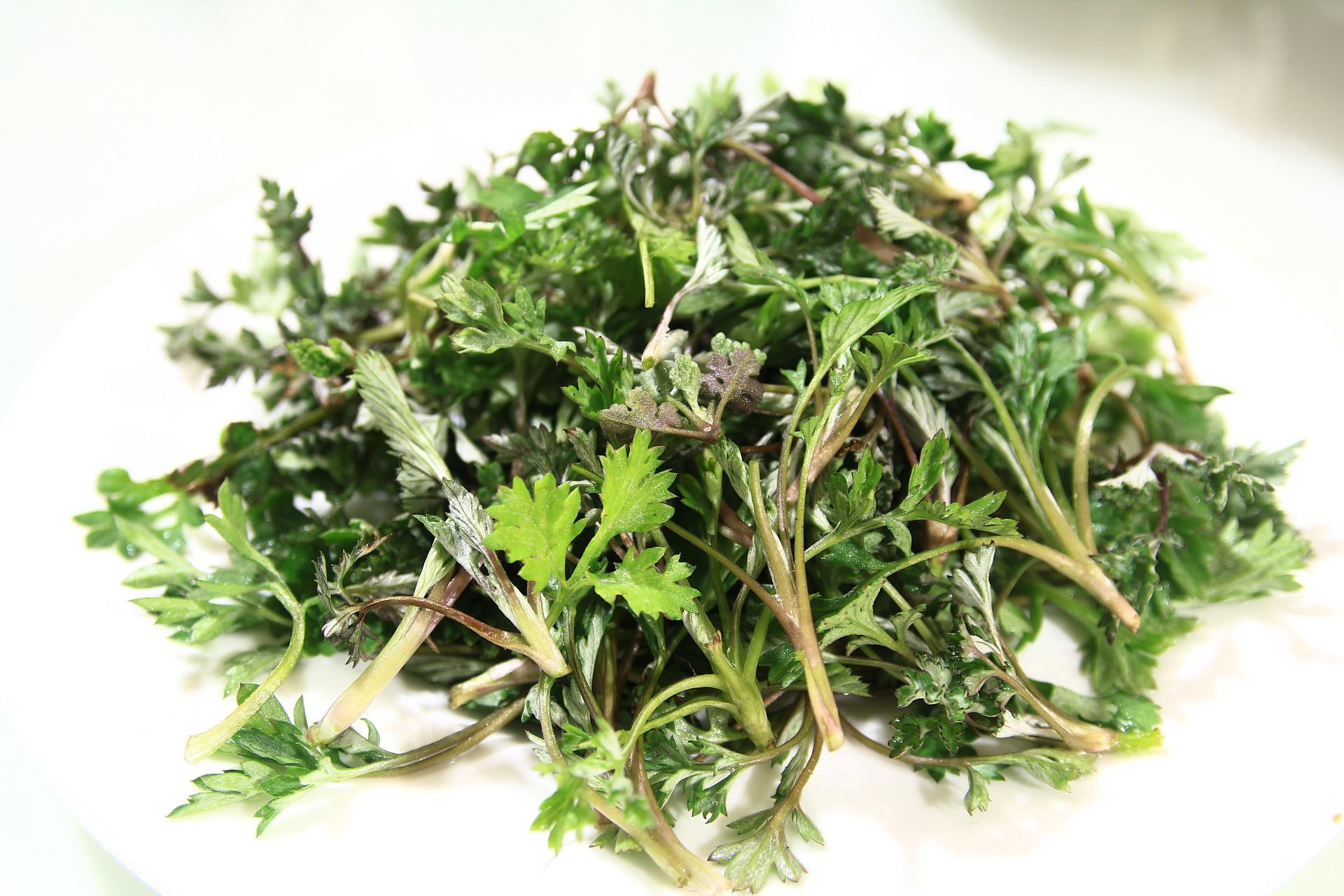
Mugwort, which belongs to the Asteraceae family, has been widely used as a medicinal food to treat various diseases from ancient times under the influence of essential oil and various vitamins and minerals. In addition, it has been recognized for its excellence as one of the three major plants to prevent adult diseases along with garlic and carrots. Because of its unique scent and taste, mugwort can be used as an ingredient in various dishes such as salads, pickles, soups, pancakes, pickles, rice cakes, pasta, noodles, etc. It is also widely used as a raw material for beauty-related products and functional cosmetics. Mugwort tea is one of the foods that uses mugwort, and refers to tea made by boiling mugwort leaves. In addition to being able to fully consume the nutritional components of mugwort, it has the advantage of being easy to consume even for those who do not like the unique aroma and taste of mugwort because it is consumed in the form of tea. Also, since mugwort is a representative food with alkalinity, it is a health tea with the advantage of neutralizing the body acidified by meat, processed foods, and instant foods. Now, let’s take a look at the various benefits of mugwort tea.
Mugwort tea main effects
1. Promote digestive health
Cineol, an essential oil component that gives off a unique scent of mugwort, is known to help promote the secretion of gastric juice and is excellent for protecting the stomach. It is also known to be effective in suppressing pathogenic E. coli, a major factor that causes inflammation of the gastrointestinal tract, due to the excellent antibacterial action of cineol.
2. Promote women’s health
Cineol, an essential oil component abundantly contained in mugwort, works to relieve uterine contractions and menstrual pain, and is said to have an excellent effect in preventing and improving symptoms of various gynecological diseases such as uterine bleeding, irregular menstruation, and bleeding. In addition, it is effective in smoothing blood flow through the excellent energy metabolism of B vitamins contained in mugwort. In addition, it is known to be effective in relieving shoulder pain and chronic back pain symptoms, as well as improving the symptoms of cold hands and feet, as it is excellent at expelling moisture and cold air from the body.
3. Strengthen immunity
Mugwort contains a large amount of beta-carotene and vitamins A and C, which are excellent antioxidants. By effectively ingesting these nutrients through the consumption of mugwort tea, it helps to reduce the concentration of free radicals, the main culprit of weakening immune function, and increase the number of white blood cells, thereby effectively enhancing the immune system. In addition, mugwort tea has an excellent detoxifying action, so it is said to be excellent in decomposing and excreting toxins, harmful substances and wastes accumulated inside the body, which helps to strengthen immunity.
4. Vascular Health
The abundant antioxidants contained in mugwort have an excellent effect in protecting blood vessels from oxidative stress caused by free radicals. In addition, the fiber and potassium rich in mugwort purify the blood, improve the constriction and relaxation of blood vessels, and help control cholesterol levels, so it is known to be effective in preventing high blood pressure and arteriosclerosis.
5. Weight Control
When you consume mugwort tea, it is said to help with fat metabolism and help you lose weight. In addition, mugwort contains a large amount of dietary fiber, so it is excellent for helping the bowel movement and regulating the moisture in the large intestine. These related actions are said to have a good effect on improving the symptoms of constipation, which tend to occur during the diet period.
other effects
When active oxygen is combined with unsaturated fatty acids in the body, a substance called lipid peroxide is produced, which can cause cellular aging. Mugwort contains abundant tannins, and tannins have the effect of inhibiting the production of lipid peroxide, which is said to have a beneficial effect on anti-aging. In addition, regular consumption of mugwort tea has anti-inflammatory and anti-inflammatory properties, so it is said to be excellent in relieving symptoms of various inflammatory diseases such as rhinitis, arthritis, and dermatitis. In addition, it is known that mugwort’s rich vitamins and minerals help improve liver function and have a good effect on recovery from fatigue.
How to make mugwort tea
To make mugwort tea, first prepare mugwort and wash it 3-4 times in clean water. After that, dry it in the sun or in a dryer, and then put about a fistful in water at 85°C to 90°C, brew it sufficiently, and drink. Although mugwort tea has various effects, it is recommended to be careful because mugwort is a plant belonging to the Asteraceae family, so it can cause problems if you have a related allergy. In addition, it is recommended to consume in moderation because excessive intake can cause problems such as abdominal pain.

































